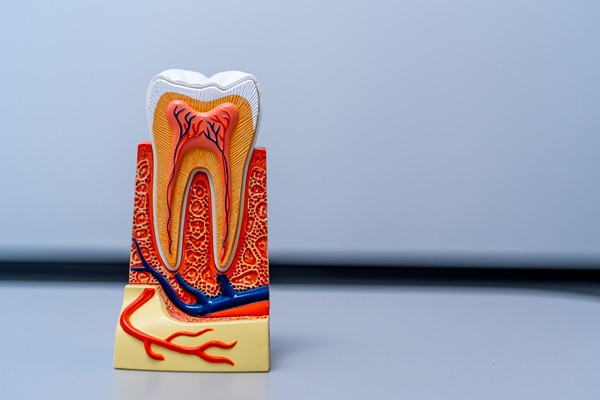4 Warning Signs of Root Canal Infection

A root canal infection is a debilitating oral condition that happens when bacteria invade the inner chamber of the teeth due to untreated dental decay or trauma. Patients with a root canal infection should seek treatment immediately because the infection can spread quickly once the bacteria attack the soft pulp material of the interior layer of the tooth. Root canal therapy is an effective treatment done to clean out the infected pulp and restore the tooth.
To ensure you visit the dentist in time for dental attention and treatment, you need to be familiar with the signs of root canal infection. This article focuses on the warning signs of the condition.
Warning signs
1. Pain
Pain is the main sign that pushes people to seek dental care when faced with root canal infection. A root canal infection brings severe pain in its wake. The pain intensifies when you bite down or place pressure on the affected tooth. Additionally, you may experience tooth sensitivity when you eat hot or cold food and drinks.
The pain can also originate from inflammation of the gums. The swelling causes the gum to turn red and tender. In most situations, the swelling and discomfort occur in the area around the affected tooth.
2. Tooth darkening
When the inner layer of the tooth is infected, the tooth may appear brown or yellow. When the infection reaches the pulp tissues, they change to dark brown, and that alters the tooth color. During the root canal procedure, the dying or necrotic pulp material will be extracted and the space filled up with gutta-percha. The tooth will also get a dental crown to improve its appearance.
3. Dental abscess
A dental abscess occurs when the bacteria and dying pulp material create deep pockets full of pus around the tooth root. This causes severe unease and bad breathe and is visible via an enlarged or persistent red bump or pimple on the gum. A foul-smelling liquid may also start to seep out of the abscess.
A periodontist will drain the painful abscess during the root canal procedure and clean out the bacteria to alleviate the pain.
4. Chronic bad breath
Patients suffering from root canal infection usually have chronic bad breath. If the bad breath is persistent despite brushing, flossing and using dental washes, then an infection is probably present.
The bacteria responsible for a root canal infection gives off an odor. This causes bad breath and a bitter taste in the mouth. The development of an abscess can further worsen the situation.
In conclusion
Typically, our body is highly efficient with combating infections. However, it is impossible for the body to deploy antibodies to the tooth. Once the root canal is infected, chances are that the nerves inside the tooth will die. If the dead nerve is not treated in time, it will accommodate the bacteria that cause infection. In some situations, the dentist may have to remove the dead tooth or conduct a root canal treatment to eliminate the dead pulp and treat the infection.
If you experience any of the signs explained above, you may be suffering from an urgent dental issue that needs immediate treatment to prevent further complications or tooth loss. Contact your dental office to book an appointment with the dentist.
Request an appointment here: https://santarosaendodontics.com or call Santa Rosa Endodontics at (707) 706-2143 for an appointment in our Santa Rosa office.
Recent Posts
A non-surgical root canal is an endodontic procedure known for preserving a tooth affected by severe decay, infection, or trauma, all without incisions in the gum tissue. Many patients become anxious when they hear the term "root canal," yet modern techniques can provide a gentler experience than expected. Endodontists often recommend this treatment when a…
A general dentist can perform basic tasks in tooth care, such as X-rays, oral examinations, filling cavities, and extractions. However, patients may be referred to an endodontist for more complex work, such as certain root canals. When is it likely for a dentist to refer a patient to this dental specialist?While a filling can fix…
Root canal treatment is often the first line of defense for treating teeth with compromised pulp chambers. The pulp chamber is the innermost layer of a tooth, and it stores nerves, blood vessels, and connective tissues. The chamber is sealed off from the rest of the tooth to protect it against bacteria and other irritants…
A root canal can preserve and strengthen a severely damaged or infected tooth. When seeing a root canal dentist, asking informed questions can provide clarity, ease concerns, and improve treatment outcomes. Understanding the procedure helps make the experience more comfortable and ensures you are well-prepared for each step.While each patient's situation is unique, the following…


